Contributors
Although this text speaks with the voices of its two authors, it represents contributions from many other people. We gratefully acknowledge those contributions and thank these individuals, whose special expertise has made it possible to introduce new students to their college experience through the holistic approach we deeply believe in.
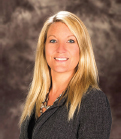
Amber Manning-Oullette of Southern Illinois University provided guidance on revising the Emotional Intelligence, Thinking in College, and Wellness chapters. Amber is the Director of Enrollment Management for the SIU College of Business, focusing on recruitment and retention strategies for undergraduate students. She holds a B.S. in Psychology and an M.S. in Counselor Education and received her Doctorate in Educational Administration and Higher Education from SIU in May 2015.
Amber enjoys working with first-year students. In her previous position, she coordinated more than one hundred sections of student success courses, designed curricula, implemented faculty training, and assisted in assessment through a University College model. She was also instrumental in the implementation of the First-Year Experience program for incoming SIU students. One of her passions is coordinating a first-year women’s leadership course and living learning community to empower her students. Her academic research interests surround first-year student early interventions, at-risk student development programs, sex education, sexual assault, women’s leadership, women’s cognitive development, and retention initiatives. She is active in the First-Year Experience movement and continues to present and publish her research at national, regional, and institutional conferences.
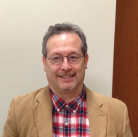
Given the nature of technology as a moving target, we relied on the work of Mark Hendrix of Palm Beach State College to update the Tech Tips for the twelfth edition. Mark heavily revised or rewrote the Tech Tips, providing new themes in several cases, with the goal of providing students with information to increase their productivity when using the apps, software, or hardware described.
Mark has been an educator for over twenty-five years. He taught in adult and community education before earning a master’s degree in education from the University of St. Thomas in St. Paul, Minnesota. He has worked as a teacher or program director in a variety of adult and vocational programs and alternative high school programming, in addition to teaching at community colleges and universities in Minnesota, Kansas, and Florida. He has served on numerous boards of community organizations and has helped them creatively and enthusiastically embrace challenges and thrive in a changing environment. Currently, he is an Associate Professor at Palm Beach State College in Palm Beach County, Florida. He has been recognized for his dynamic teaching strategies, use of technology in the classroom, and his ability to work effectively across departments and outside organizations.
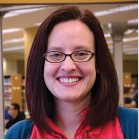
Lea Susan Engle rewrote and updated the chapter on information literacy for the previous edition, helping to incorporate the topics of writing and speaking. Lea is a former instructor and first-year experience librarian at Texas A&M University and currently serves as Training Coordinator for the Canvas learning management system at The University of Texas at Austin. Lea earned a B.A. in Women’s Studies from the University of Maryland, College Park and holds an M.S. in Information Studies and an M.A. in Women’s and Gender Studies from the University of Texas at Austin.
Her professional interests include educational technology, the first-year experience, creative outreach methods, feminist pedagogy, library service to GLBTQ users, formative assessment, taking risks, and fostering cross-campus collaborations. She is a library evangelist, fulfilling her dream of strategically positioning librarians in all areas of academia.
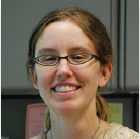
Casey Reid vastly updated the chapter on Time Management to reflect the needs of today’s students. Casey graduated in 2002 from Missouri State University with a B.A. in Anthropology and Professional Writing, and in 2004 she received an M.A. in Writing from the same institution. From 2004 through 2011, she worked on the English faculty at Metropolitan Community College (MCC) in Kansas City. From 2011–2014, she was MCC’s College Orientation Coordinator, initiating and directing a mandatory first-year seminar class for 6,000–7,000 new students each year. In 2014, she became the Director of Developmental Education Programs at East Central College, where she implements first-year seminars and programs for students in developmental education classes. When she isn’t working, she adds balance to her life by running, biking, hiking, reading, spending time with her three rescued dogs, and hanging out with friends and family.
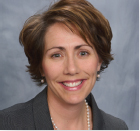
The wealth of resources offered in the Majors and Careers chapter is due in large part to Heather N. Maietta. Heather is Associate Vice President of Career and Corporate Engagement at Merrimack College. While at Merrimack, she created Generation Merr1mack, a career and professional development program to support first-generation college students. Generation Merr1mack was a finalist for the 2014 Diversity and Inclusion award from the National Association of Colleges and Employers.
Heather has presented or copresented more than thirty times nationally on topics related to career and professional preparation, and she is a Certified Career Development Facilitator Instructor through the National Career Development Association. Heather has authored articles and research reports in several publications, including About Campus; Career Convergence; and ESource. Heather has also coauthored three textbooks for Kendall/Hunt Publishers. Most recently, she coauthored and edited The Senior Year: Culminating Experiences and Transitions, published by The National Resource Center on the First-Year Experience and Students in Transition.
Heather also serves on the Notre Dame Education Center Board of Directors, an organization that provides education and support services for adult learners in the greater Lawrence, Massachusetts, community.
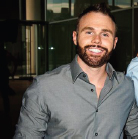
Chris Gurrie is an Assistant Professor and Director of the Speech Communication Program at the University of Tampa. He also teaches first-year experience seminars and advises undergraduate students. He holds a doctorate from Nova Southeastern University, and when he is not teaching he speaks about the concept of immediacy and student-instructor connections. He has published other articles about communication among the Millennial Generation. He contributed the first generation of Tech Tips, which were introduced in the tenth edition, and wrote the Guide to Teaching with YouTube, which is available online and as part of the Instructor’s Manual.
We would also like to acknowledge and thank the numerous colleagues who have contributed to this book in its previous editions:
Chapters 2, 6, 7, 8, 9: Jeanne L. Higbee, University of Minnesota
Chapter 3: Catherine Andersen, University of Baltimore
Chapters 4, 11: Tom Carskadon, Mississippi State University
Chapter 7: Mary Ellen O’Leary, University of South Carolina
Chapter 10: Charles Curran, Distinguished Professor Emeritus, University of South Carolina at Columbia
Chapter 14: Natala Kleather (Tally) Hart, founding head of the Economic Access Initiative at The Ohio State University; and Kate Trombitas, Director of Development at The Ohio State University College of Nursing
Chapter 15: Philip D. Gardner, Michigan State University